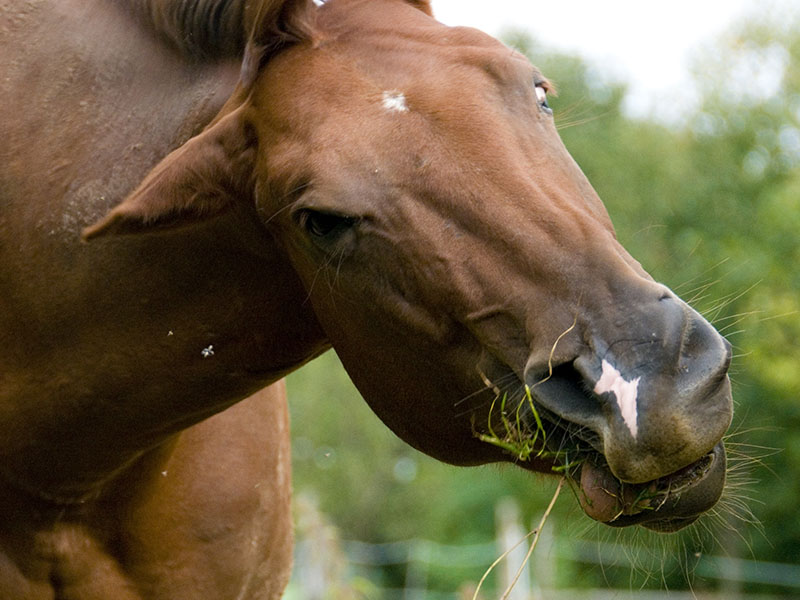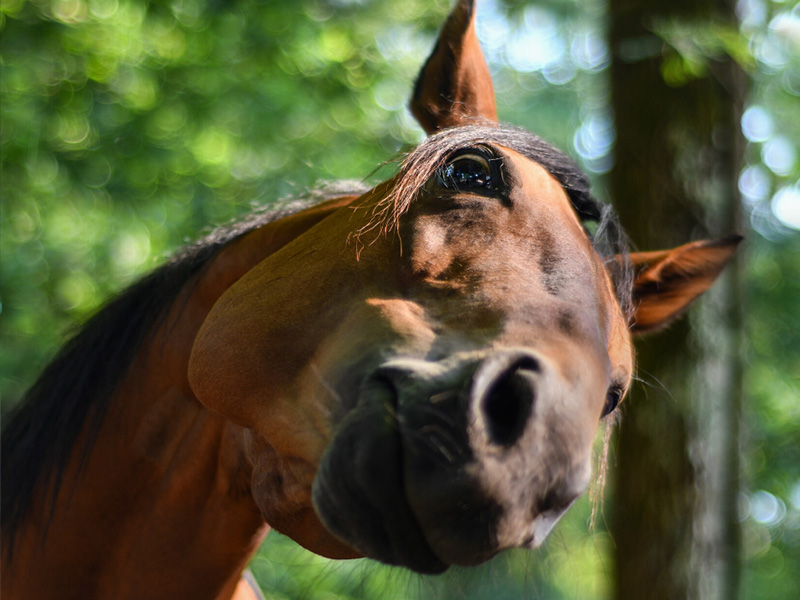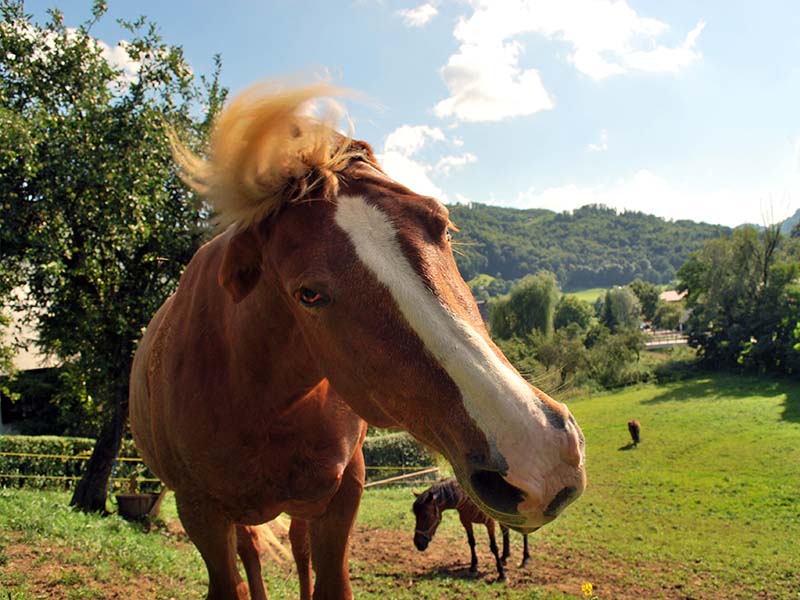Trigeminal-mediated headshaking (TMH) in horses can be a difficult disorder to diagnose, treat and manage. It is still a poorly understood facial pain condition that is thought to affect around 1% of the equine population with varying degrees of severity. TMH is commonly exacerbated during exercise, which may not only affect the performance of the horse, but in severe cases, make him or her dangerous to ride and handle.
Clinical signs of TMH include:
- Frequent, sometimes violent flicks/jerks of the head
- Signs of nasal irritation such as snorting, sneezing, rubbing/striking the noses
- Signs of distress both in paddock and when handled/ridden
A large percentage of TMH cases are seasonal, with the severity of the conditioning often worsening during spring and summer. This is thought to be related to environmental triggers such as bright sunlight, wind, rain, noise, pollen and dust.
Diagnosis of TMH
There are several reasons why a horse may shake its head –
- Sinus abnormalities
- Behavioural/rider issues
- Eye conditions
- Irritation from insects
- Ear mites
- Ill-fitting gear
- Dental conditions
A diagnosis of TMH is often made once the above-mentioned causes have been ruled out.
Management of TMH
Conservative management options:
- Nose nets/fly masks
- Supplementation with Vitamin B and Magnesium
- Environmental changes (ie. shifting paddocks to avoid certain trees/pastures)
- Minimising dust exposure
- Avoid riding on ‘glarey’ surfaces/high UV days
Medication:
If conservative management is ineffective, there are two medications available for treatment of TMH.
- Cyproheptadine: an oral antihistamine
- Carbamezapine: an oral anti-convulsant drug


These two medications are often used in combination with varying results, with some horses responding extremely well, and others with minimal response. Unfortunately, neither of these medications are competition-legal.
Research of this frustrating condition continues, and therefore new treatments may become available as more information is uncovered. If you believe that your horse may have TMH, please don’t hesitate to contact the clinic and chat to one of our vets.

